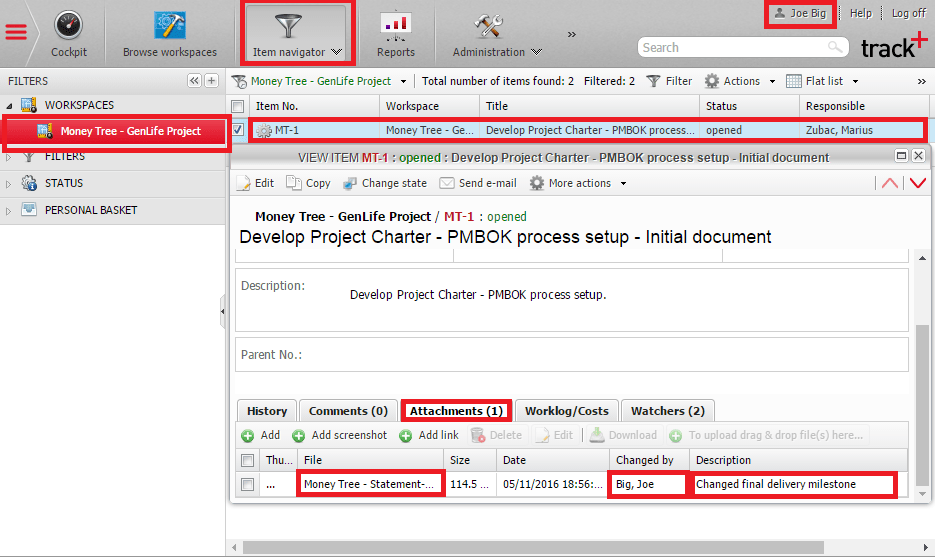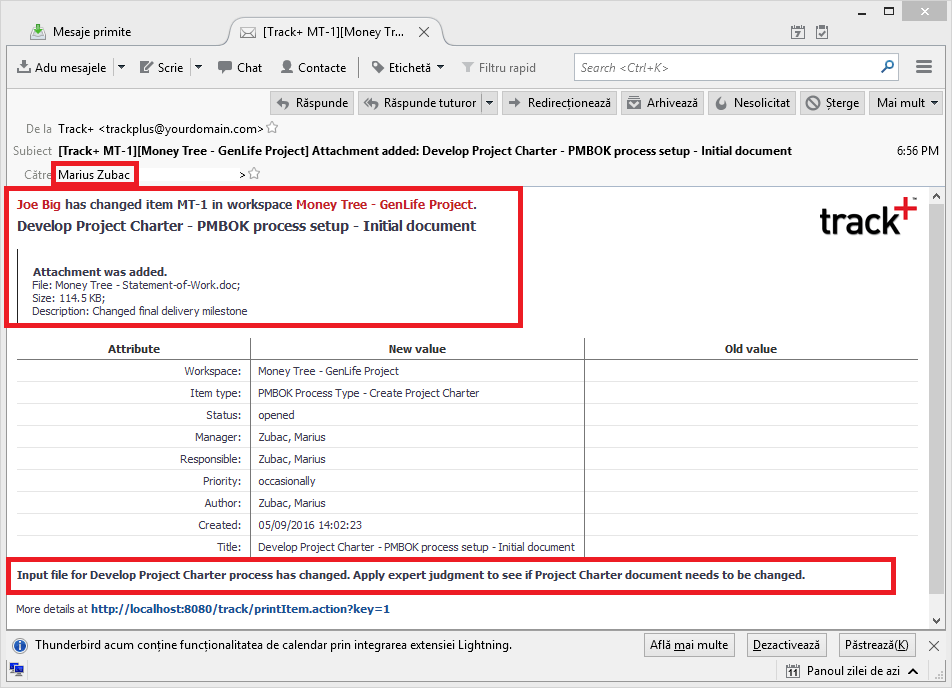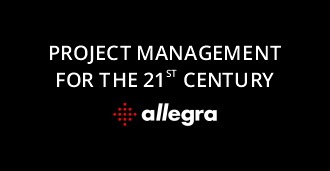PMBOK® Processes Support in Allegra Tutorial – Part 3
This last installment from the series illustrates the artifacts change management process in Allegra applied particularly to a PMBOK® process-related input artifacts. The article follows the setup used in the second part of the tutorial and can be fully understood only in this larger context. Why the PMBOK® artifacts change management is important for today’s project management practice, and why you need appropriate project management tools, like Allegra, is argued in the first part of the series.
Typical Use Case scenario for PMBOK® artifacts change management in Allegra
Remember the Develop Project Charter PMBOK process type, the “Money Tree – Statement-of-Work.docx” document added to the process as input artifact, and Big Joe, the project initiator/main sponsor of the Money Tree – GenLife sample project from part 2?
Consider then, the reality of the project management practice that shows that almost all projects suffer changes during their lifetime. So let’s imagine a real scenario, when, the main sponsor of the project, Big Joe, changes the content of the “Money Tree – Statement-of-Work.docx” document.
Allegro cannot detect automatically the changes made to a Word document. For Word documents, a document change detection can be forced by deleting, editing (in Word), and then by attaching the document back to the process item.
So, let’s “ask” Big Joe to login and delete the attachment from the “Develop Project Charter process” item. Then he should edit the Money Tree – Statement-of-Work.docx Word document, save it, and attach again the document to the process item. This change is “felt” by theAllegro system like in the illustration below.

While this change is tracked and displayed by Allegra what you really want as a PM, is to get notified about the change. And this happens due to the way both the project and the PMBOK Process Type – Create Project Charter have been set in the second part of the tutorial.
When the new, updated version of the SOW document is attached again to the process item, Allegra ’s notification system sends all document’s watchers e-mail notifications as the one illustrated below.

What we should notice in this Thunderbird email message, is that although the document has been changed by Big Joe, the PM has received a notification email. We can further notice from the description text that the delivery milestone has been changed, a change that is important, and require the PM’s full attention and action. It is very likely that the Project Charter for the project will need to be modified. Please note that the message received “Input file for the Develop Project Charter …”, highlighted above, is the one set in the email template (see part 2 of the tutorial).
And, for a PM the fun just begins, because the Project Charter acts as an input artifact for the following PMBOK® processes: Identify Stakeholders, Develop Project Management Plan, Collect Requirements, and Define Scope [1].
Nobody claims PMBOK®-based project management is easy, however Allegra helps a PM keep all the processes, and the entire activity under control. And this is what we want from a project management tool, like Allegra!
Conclusion
In Allegra PMBOK® processes are flexibly modeled as items. Nothing is forcing you to implement all 47 PMBOK® processes, although you can. You should however, chose to implement whatever processes make sense for your project, and for your organization, and you could even mix the PMBOK® processes with processes borrowed from other methodologies, like PRINCE2 or ITIL.
The main takeaway from this three-part tutorial should be that if you, as a project manager, want to conduct a project management activity based upon the PMI PMBOK® framework, then Allegra can help you control the artifacts change management for the project. Easy and intuitively.
Resources
[1] Project Management Institute, PMBOK Guide – Sixth Edition (2017).




